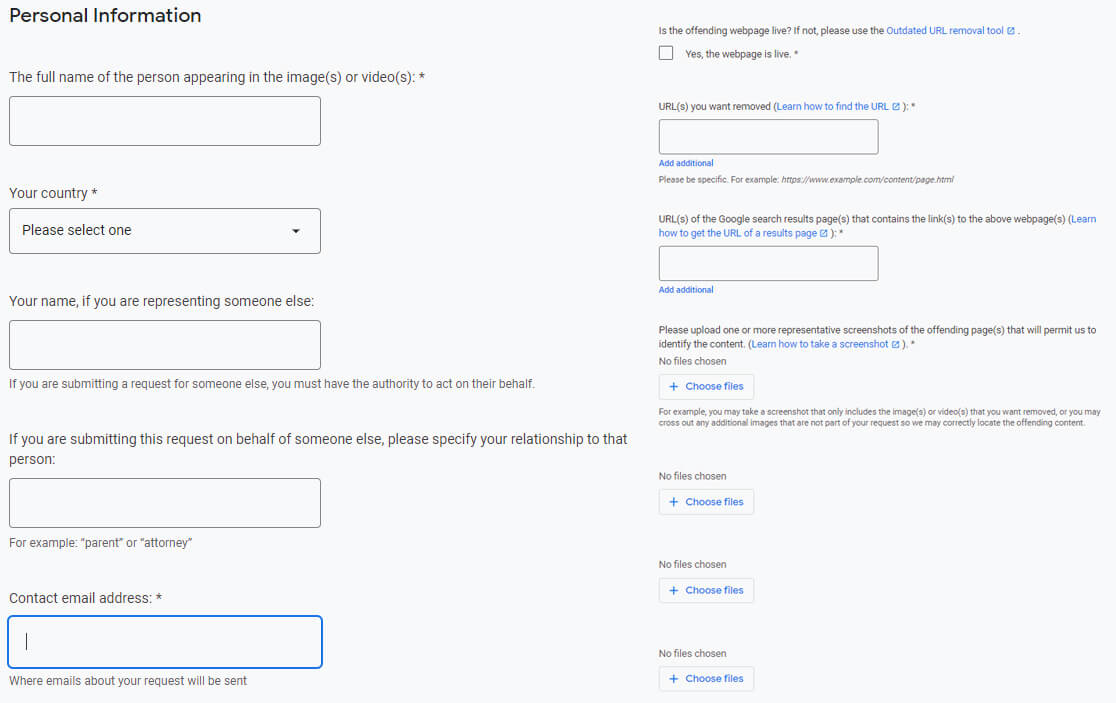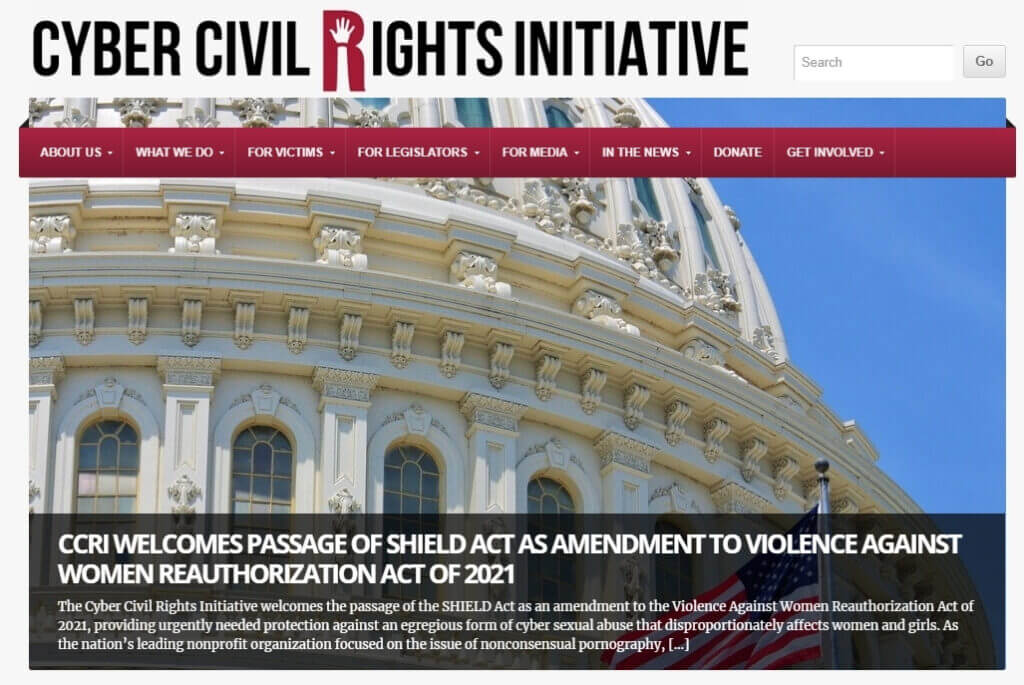Revenge pornography, also known as non-consensual pornography, is a growing problem. It refers to the unauthorized sharing of sexually explicit or intimate images or videos of an individual, often intended to cause harm or distress to the person depicted. Ex-partners commonly carry out this type of behavior following a break-up or act of infidelity. However, it can also be done by strangers or individuals seeking to blackmail or exploit the victim.
The effects of revenge pornography can be devastating for the victim. It can cause significant emotional and psychological harm, including shame, embarrassment, and fear. In some cases, it can also lead to the loss of employment, damage to personal relationships, and even physical harm. In addition, the victim may feel a loss of control over their image and privacy, as the photos or videos can be shared on a wide range of platforms and can be difficult to remove.
Revenge pornography is also a criminal offense in many countries, including the United States, the United Kingdom, Canada, and Australia. It is considered harassment and can carry severe penalties, including fines and imprisonment. Despite this, it remains a difficult crime to prosecute, as it often involves proving intent and identifying the perpetrator.
The rise of social media and other online platforms has made it easier for individuals to share intimate images and videos and harder to track down and prosecute those responsible for sharing non-consensual pornography. It is vital for individuals to be aware of the risks and to take steps to protect themselves. This includes being cautious about the images and videos they share and the people they share them with and monitoring their online presence.
If you or someone you know is a victim of revenge pornography, it is crucial to seek help as soon as possible. This can include contacting law enforcement, seeking legal advice, and seeking support from friends, family, and mental health professionals. Organizations and resources are also available to assist victims in removing images and videos from the internet and rebuilding their lives.
Revenge pornography is a serious and harmful act that violates an individual’s privacy and can have far-reaching consequences. It is important for individuals to be aware of the risks and to take steps to protect themselves, and for society to take a strong stance against this form of abuse.
Why is Revenge Porn Dangerous?

You may not understand the danger that revenge porn poses to people. In most cases of revenge porn, victims report a significant amount of mental and emotional distress. Even in the most famous cases of revenge porn, perpetrators have caused immense damage to celebrity victims.
Revenge pornography is dangerous for several reasons:
- Emotional and Psychological Harm: The unauthorized sharing of intimate images can cause significant emotional and psychological harm to the victim, including feelings of shame, embarrassment, and fear. This can lead to issues such as anxiety, depression, and PTSD.
- Loss of Control: Revenge pornography can make victims feel like they have lost control over their privacy. This can lead to feelings of powerlessness and vulnerability.
- Damage to Personal Relationships: Sharing intimate images can also damage personal relationships. Friends and family may see the pictures, and the victim may feel too ashamed to maintain those relationships.
- Loss of Employment: The sharing of intimate images can also lead to the loss of employment, as potential employers may see the pictures, and the victim may feel too ashamed to continue working.
- Difficulty in removing images: Even though the victim may want to remove the photos, it can be challenging as the pictures can be shared on a wide range of platforms and can be difficult to track down.
- Hard to prosecute: Revenge pornography is a criminal offense in many countries, but it remains a difficult crime to prosecute, as it often involves proving intent and identifying the perpetrator.
- Stigma: The victim of revenge pornography may also face a significant amount of societal stigma and discrimination, which can further exacerbate their emotional and psychological distress.
All these reasons make revenge pornography a severe and dangerous problem that can have far-reaching consequences for victims. It is important for individuals to be aware of the risks and to take steps to protect themselves, and for society to take a strong stance against this form of abuse.
Researchers have demonstrated similar trauma experienced by victims of revenge porn as that experienced by sexual assault victims. Posting revenge porn causes real-world harm to the victims. No matter how inconsequential the act may seem to the perpetrator.
Due to the nature of the internet, removing revenge porn and ensuring it’s gone for good is tricky. Many people make backups of adult images and videos. Some people use automatic bots to trawl adult sites for such content. However, with dedication and time, you can be sure that this material will never resurface again.
How to Remove Revenge Porn
Removing it can be complicated, depending on where the perpetrator posts revenge porn. Attempting to have revenge porn removed can cause a large amount of distress to the victim. Removing revenge porn can involve facing what has happened every day for an extended period.
Several companies claim to offer a guaranteed service to remove revenge porn. These services are often expensive and time-consuming, with no guarantee that the content in question will be removed.
You can explore various options featured below to attempt to have such media removed yourself, but you may meet with limited success, depending on the company hosting the content.
Google Removal Form

As featured in our article on the service, Google has a form you can fill out to have information about yourself removed from search engine indexing. Usually, if you fill out this form correctly, Google will remove the page from search results within a few days.
The biggest issue with this option is that it doesn’t remove the images or videos; it only makes them harder to find.
Contact the Domain Provider or Hosting Company
Another option is to contact the company hosting the site (like Amazon or Google Cloud) or the domain name provider (like GoDaddy). You can do this by using domain lookup tools to find their information. To find a guide to domain lookup tools, check out our guide on reporting abusive websites.
You should collect as much evidence of the material as possible. Send everything you’ve contained in an email to the domain hosts’ support or abuse address. If the company that does the hosting is based in a country with revenge porn laws, you should remind them of the legal ramifications of knowingly hosting revenge porn.
The downside to this method is that hosts based in certain countries may be unwilling to help. Countries like Panama have no data retention laws and do not participate in various online cybersecurity schemes, so they’re under no obligation to respond to requests to cease hosting anything. As is to be expected, Panama has no laws governing revenge porn.
Another tip is to file an abuse report with Cloudflare, as most of these shady websites have DNS services by Cloudflare.
Contact the Poster
The most complex and final tool available is to contact the person who posted the image in the first place. Typically, the publisher will be someone who intends you harm, so they’ll likely be unwilling to cooperate with any requests you send. Using a third party like Hacked.com might be a better solution to avoid direct communication with the criminal.
An important tactic is to employ any laws governing revenge porn in your country or territory. If you live in a country where revenge porn is illegal, you can use that to your advantage. Warn the poster that you’re contacting the authorities. This warning may convince them to remove any images they’ve posted.
Contacting the Authorities to Remove Revenge Porn

Depending on where you live, you may be able to request help from the authorities to remove revenge porn from the internet.
If you’re living in the UK, Victim Support offers help on the helpline below. You can visit their website for more information on their services. You can contact them through Facebook messenger, email, or their anonymous Whisper form.
Revenge Porn Helpline UK: 0345 6000 459
If you live in the US, you have several options for who to contact. Your local state authorities may be able to help you, depending on the revenge porn laws in your state. If you’re in immediate danger, you should contact 911 immediately.
You can contact the Cyber Civil Rights Initiative helpline for advice on what to do.
Cyber Civil Rights Initiative Helpline: 844-878-CCRI (2274)
What Not to Do About Revenge Porn
It is essential to know what actions to avoid when dealing with revenge pornography. The following are some things you should not do:
- Do not pay a ransom to remove the images: Paying a ransom to the perpetrator may result in further demands for money, and it does not guarantee that the photos will be taken down.
- Avoid publicizing the situation: Bringing attention to the perpetrator may cause further emotional distress and may not result in the images being taken down.
- Do not post images of the perpetrator online in response: This can worsen the overall situation and may lead to legal consequences, especially if you live in a country with anti-revenge porn laws.
It is important to remember that revenge pornography is a serious crime that can have devastating consequences for victims. Instead of taking matters into your own hands, seeking legal and professional help is best to address the situation and protect yourself.
How We Can Help You Remove Revenge Porn
Featured image by MikeDotta from Shutterstock.com